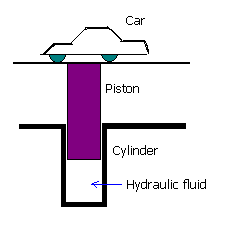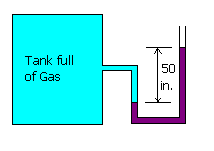Unit-1
Completion requirements
- If an oil has an absolute viscosity of 510 poises, what is its viscosity in S.I. units?
- What is a Newtonian fluid? Give examples.
- Give an example for Pseudo plastic fluid.
- A typical mud is 70 weight percent sand and 30 weight percent water. What is its density? The respective densities are
r sand = 140 lb/ft3 and r water = 62.3 lb/ft3 - What is the smallest diameter glass tube that will keep the capillary height-change of the water at 20oC less than that of 0.9 mm?
- Calculate the approximate depression of mercury at 20oC in a capillary tube of radius 1.5 mm
- Air is introduced through a nozzle into a tank of water to form a stream of bubbles. If the streams are intended to have a diameter of 2 mm, calculate by how much the pressure of the air at the tip of the nozzle must exceed that of the surrounding water.
- Why are specific gravities most often referred to the density of water at 4oC instead of at 0oC?
- Most swimmers find the pressure at a depth of about 10 ft painful to ears. What is the gauge pressure at this depth?
- A new submarine can safely resist an external pressure of 1000 psig. How deep in the ocean can it safely dive?
- The deepest point in the oceans of the world is believed to be in the Marianas Trench, southeast of Japan; there the depth is about 11,000 m. What is the pressure at that point?
- On a very cold day at the South Pole, the temperature of air is -60oF. Assuming that the air remains isothermal up to a 10,000 ft elevation and that the pressure at the sea level is 1 atm, calculate the pressure at 10,000 ft.
- In the hydraulic lift in Fig1, the total mass of car, rack, and piston is 1800 kg. The piston has a cross-sectional area of 0.2 m2. What is the pressure in the hydraulic fluid in the cylinder if the car is not moving?.
- It is proposed to build a raft of pine logs to carry a cargo on a river. The cargo will weigh 500 kg, and it must be kept entirely above the water level. How many kilograms of pine logs must we use to make the raft, if the logs may be entirely submerged and they have sp.gr = 0.8?
- The fluid in the manometer of Fig2 is ethyl iodide with sp.gr = 1.93. The manometeric fluid height difference is 50 in. What is the gauge pressure in the tank? What is the absolute pressure in the tank?
- A furnace has a stack 100 ft high. The gases in the stack have M = 28g/gmol and T = 300oF. The outside air has M = 29 g/gmol. If the pressures of the air and the gas in the stack are equal at the top of the stack, what is the pressure difference at the bottom of the stack?
- A natural gas well contains methane (M = 16 g/gmol), which is practically a perfect gas. The pressure at the surface is 1000 psig. What is the pressure at a depth of 10,000 ft? How much error would be made by assuming that methane were a constant density fluid? Assume the temperature is constant at 70oF.
- For low pressure differences, the inclined manometer shown in Fig3 is often used. If the scale is set to read zero length at PA = PB and the manometer fluid is colored water, what will the reading be at PA - PB = 0.1 lbf/in2? What would be reading of an ordinary manometer with vertical legs for this pressure difference?
- Calculate the pressure in the ocean at a depth of 2000 m assuming that salt water is
- The viscosity of an oil is 10 cP and its specific gravity is 0.8. Reexpress both of these in both lbm, ft, sec system and in S.I. units.
- Say True or False.
- Absolute pressures and temperatures must be employed when using the ideal gas law.
- To convert the pressure from gauge to absolute, add approximately 1.01 Pa.
- It is possible to have gauge pressures that are as low as -20 psig.
- A vertical pipe full of water, 34 ft high and open at the top, will generate a pressure of about one atmosphere (gauge) at its base.



a) Incompressible with a constant density of 1002 kg/m3
b) compressible with a bulk modulus of 2.05 x 109 N/m2 and a density at the surface of 1002 kg/m3
Last modified: Saturday, 3 August 2024, 11:34 PM
